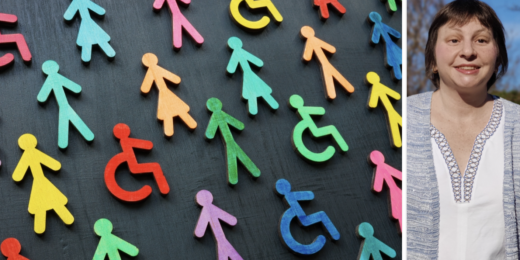Research is showing that advanced methods of genetic testing aren’t equally useful for everyone: They’re less accurate for non-white families, raising concerns about how historical gaps in whose DNA gets studied produce inequities in medical care.
Category: Stanford Medicine Children’s Health
Why precision medicine’s targeted interventions may help prevent dangerously early births
Approximately 10% of babies worldwide are born three or more weeks before their due date -- making premature birth the leading cause of death for children under 5 globally.
Sick of being sick? As respiratory viruses roar back, experts offer guidance
Nationwide, the percentage of health care visits for flulike symptoms ticked up above the baseline at the start of November and has remained elevated ever since, according to the Centers for Disease Control and Prevention.
More kids are being hospitalized for eating disorders — researchers learned why
Over the last decade, physicians have taken a broader view of adolescent eating disorders, thanks to a growing recognition of the variety of disordered eating patterns that can harm patients’ health, especially their heart function.
How one blind genetic counselor is doing her part to address ableism
Many people mistakenly assume that because Ronit Mazzoni has been blind since birth, her career choice must have been related to her condition.
What one youth mental health expert wants you to know about suicide
September is Suicide Prevention Month and mental health experts at Stanford Medicine have important information to share.
Celebrating Hispanic Heritage Month at Stanford Medicine
Stanford Medicine celebrates the contributions, care, and research that's by and for the Hispanic community.
Stanford Medicine making strides in advancing women leaders
Stanford Medicine is celebrating Women in Medicine month and highlighting our high rate of women in high-level roles.
How to safeguard teens’ well-being on social media
A Stanford Medicine expert has tips for parents wondering how to help teens balance mental health concerns and social media use.
Contributing to greener Stanford Medicine operating rooms
Stanford Medicine sustainability experts work with researchers, doctors and environmental professionals to ensure greener operating rooms.
Preparing schools for a greener future
Stanford Medicine experts, nonprofit leaders, policy makers and others "green" schools and prepare them for a climate resilient future.
Brain cancer specialists hope Biden’s Moonshot speeds therapies
Stanford Medicine brain cancer researchers joined other thought leaders in Washington, D.C. to discuss what the Biden Administration-led Cancer Moonshot initiative could mean.
This Is My Why: LGBTQ+ education
Stanford Medicine researchers, health care workers and staff speak to why they're passionate about LGBTQ+ care, education and advocacy.
Photos shine light on pediatric medical experience
Pediatric patients and their parents capture their experiences at Lucile Packard Children's Hospital Stanford, sharing photos in an exhibit.
What does it mean to be neurodiverse in medicine?
Stanford Medicine neurodiversity and autism expert Lawrence Fung discusses what it means to be neurodiverse in medicine.
Catalyst’s newest cohort spotlights Stanford innovation
Stanford Medicine's Catalyst program, which aims to accelerate impactful health care innovations, launches a new cohort.

















